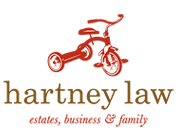You have a 401(k), right? Sure you do. And you have one (or more) because everyone tells you it’s a heck of a deal. But has anyone ever told you that your IRS qualified fund strategy could end up being a horrible weight on your retirement?
Every January, you opt in to contribute to your 401(k) the maximum allowed that year. You’ve been told over and over that this type of retirement fund will become a nice big nest egg for your retirement on dollars you never paid tax on! Isn’t that something?! What could possibly be wrong with stiffing Uncle Sam every year for the taxes you owe on that maximum contribution?
Well, a lot, actually.
Picture this…
Your potential new employer, desperate for your rare services, woos you with its yummy benefit package–medical and dental, vacation, family time. They even have a 401(k). They might even contribute to it. Before you know it, you’ve saved up $100,000 without hardly even noticing.
Your pre-tax contributions are called “Qualified Funds” meaning the IRS puts them into a special category because the government hasn’t taken its bite out of it yet. You get to grow your funds at an accelerated rate because you have more dollars in the account from the beginning. Therefore, you’ll have more money to retire on when the time comes.
And when the time comes, the TAXMAN COMETH too. And he carryeth a biggeth sticketh. And whallops you over your tax-deferring head.
When telling you about their sexy 401(k) benefits, most companies won’t tell you the downside. That would make it distinctly less sexy. But I’ll tell you some of the dirty little 401(k) secrets. Here are six:
- You don’t know what the tax rate is going to be when you start taking distributions. Congress is notorious for increasing taxes regularly but not well known for reducing them. Odds are very good that you’ll pay a higher rate in the future than you do now.
- You’re ability to get to your own money is extremely limited. Because you’ll pay a 10% penalty to take it out early. Once in, those funds are tremendously difficult to get out.
- You may be tempted to think you have more than you really do. When you look at that account statement, get in the habit of lopping of 40% of its value to get a better idea of what you really own. If you have $100,000 401(k), start thinking of it as $60,000.
- You’re paying taxes with future, inflated dollars. Huh? Savings are always devalued by inflation. So in 20 years, our cost of living (food, shelter, clothing, healthcare) will rise at an average of 4-5% a year. Retirement accounts then must keep pace with at least that PLUS whatever tax you’ll have to pay on it when you take it out. So to keep pace with inflation, qualified accounts have to make a lot MORE than other funds to keep pace with the economy.
- You lose control over your investments. Because investments in qualified funds are limited to a few participating funds or must be invested in employer’s stock, your ability to steer your own ship is limited. You can’t hedge risks or balance your portfolios with investments of your own choosing. In short, you’re stuck.
- If all you have to retire on are qualified funds, you will have a dilly of a time dealing with Medicaid for long-term care needs. If you ever need long-term care, you may have to liquidate funds in order to transfer them away from you or pay for your care if you haven’t purchased a long-term care insurance policy. This is why you hear of elderly couples divorcing in order to pay for their healthcare. Having to have a fire sale of your assets or get a divorce is a bitter pill that no one should have to swallow. Plus, if you have serious health issues before you turn 65, you’ll pay the 10% penalty to use your own funds. To be fair, there is an upside. For qualified accounts in payout mode, payments not taxed at all if paid directly to a nursing home. But you have to be incapacitated enough to be in a nursing home. Woowoo. I’m underwhelmed.
Qualified Funds are Uncle Sam’s Savings!
Qualified funds sound great on paper. To some degree, they are. But, the government didn’t create these vehicles without some benefit to itself. The government is willing to wait 20, 40, 60 years for a bite of your apple. The Treasury is quite content to use YOUR pre-tax earnings as its virtual savings account. But you lose control, you carry the risks, and the IRS collects a potentially much larger return later. With qualified funds, you leave the fate of your retirement funds to chance. And if your entire savings is in qualified funds, you may face difficult choices in the future.
Then What Should I Do?
DIVERSIFY! Actually, I do think you should have some qualified funds. If you can make a contribution that reduces your current tax liability by dropping you to the next lower tax bracket right now, DO IT for heaven’s sake! You can give yourself as much as a 10% raise by doing that alone! And that’s good. Just don’t let that be your only retirement plan.
TAKE CONTROL! Find out into other types of qualified funds such as Roth IRAs and self-directed IRAs which give you more control and fewer tax consequences later. Consider stocks, bonds, mutual funds, hedge funds, real estate, and private investment. Just make sure you can change your course if you need to.
INVEST IN YOURSELF! Go back to school for that degree if you’ve always wanted. Start that business you’ve always dreamed of owning. Learn to play the piano or speak Cantonese. Go get that dream job. Your best bet may just be on yourself! After all, you have control over YOU. You don’t have control over the markets or the economy. But you can make the most of yourself, your talents, your dreams, your passion.
HIRE A FINANCIAL PLANNER! The BEST thing you can do right now is to get thee to a certified financial adviser or planner (CFA/CFP) who is not on commission. Pay an hourly fee to someone not invested in your retirement for neutral advice. Look up a local professional at the CFA Institute, one of the governing bodies for financial advisers. Ask friends and family for their recommendations. Just don’t go it alone. There are a lot of great advisers out there waiting to be of service to you.
COME SEE US! The next thing you can do, once you’ve begun to take a closer look at your portfolio, is to come see me about how to make sure you’re assets are protected from your creditors and predators (meaning nursing homes) and that if something were to happen to you, your family would be able to carry on without you no matter what your investments are in. Call 303-747-3909 to schedule a Family Wealth Planning Session. That meeting, a $550 value, is complimentary for folks who mention this article because you’re ready to make sure you know exactly what you can do to protect yourself and your family.


 A later-in-life attorney, Martha Hartney opened the practice in 2010 to serve the people she loves because she is committed to helping moms and dads bring their greatest gifts into parenting fearlessly and with joy and making sure children are completely cared for if something happens to their parents.
A later-in-life attorney, Martha Hartney opened the practice in 2010 to serve the people she loves because she is committed to helping moms and dads bring their greatest gifts into parenting fearlessly and with joy and making sure children are completely cared for if something happens to their parents.
